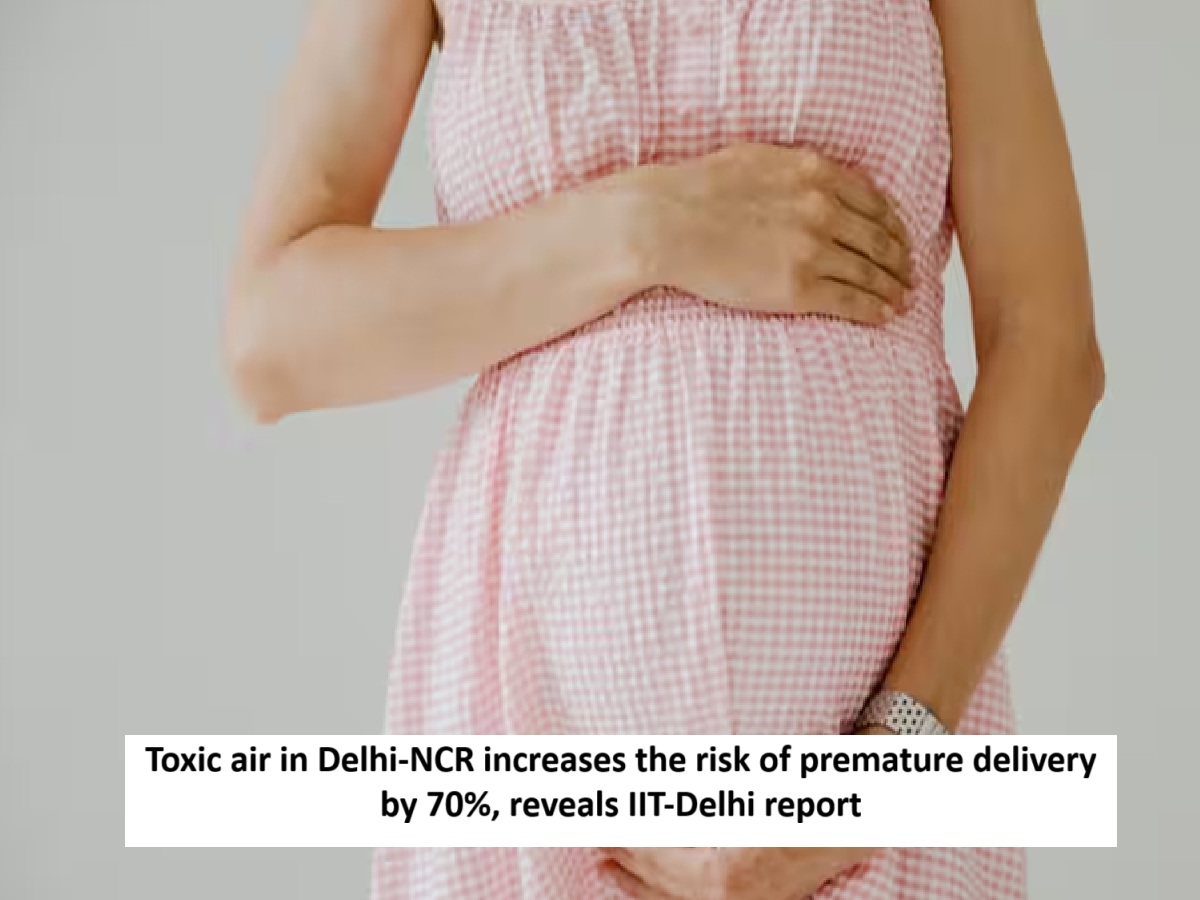
News Topical, Digital Desk : The impact of the ever-increasing smog and poor air quality index in Delhi-NCR is no longer limited to respiratory diseases or heart problems. New research has revealed that polluted air poses a serious threat to pregnant women and their unborn babies. A study conducted by IIT Delhi, the International Institute of Population Sciences in Mumbai, and institutions in the UK and Ireland has revealed that fine particulate matter in the air is proving to be dangerous for pregnant women.
The risk of premature delivery increases by 70 percent
According to research, women who breathe highly polluted air during pregnancy have a 70 percent increased risk of premature birth. They also have a 40 percent higher chance of having low-birth-weight babies. According to the study, with every 10 micrograms per cubic meter of PM 2.5 increase in air, the risk of premature birth increases by 12 percent. Data from the National Family Health Survey also shows that between 2019 and 2021, 13 percent of babies in India were born prematurely, while 17 percent were underweight. Experts believe that the country's toxic air is a major reason for this.
What is PM 2.5 and how dangerous is it?
PM 2.5 are very fine particles, less than 2.5 microns in size. This means they are about 30 times smaller than the width of a human hair. These particles are produced by vehicle emissions, factory smoke, construction dust, and the burning of fossil fuels. Furthermore, they are so small that they can reach deep into the lungs and enter the bloodstream. This affects oxygen flow in the body and increases inflammation, which can disrupt the delivery of nutrients and oxygen to the developing baby.
What effect does pollution have on children?
According to a report by IIT-IIPS, exposure to pollution during pregnancy increases oxidative stress and inflammation in the body, which impacts placental function. This directly impacts child development. This effect is most pronounced during the second and third trimesters, when the baby is growing rapidly in the womb. Exposure to pollution during this time can lead to premature delivery, stillbirth, and impaired growth. Experts say that this pollution disrupts the flow of oxygen and nutrients, which can impact the development of the baby's organs and increase the risk of congenital problems.
worst affected states
According to research, northern states like Delhi, Punjab, Haryana, and Uttar Pradesh are the most affected. Pollution levels in these states often fall into the very poor or severe category. In contrast, the clean air in Northeast India has been found to be beneficial for the health of babies born there. Low birth weight and premature babies face many health problems not only initially but also later in life. This increases the risk of infant mortality, developmental delays, diabetes, high blood pressure, and heart disease. Furthermore, according to the report, long-term exposure of mothers to pollution can increase the risk of preeclampsia, high blood pressure, and miscarriage.
Measures to protect pregnant women from pollution
- Pregnant women should avoid going out on highly polluted days.
- Air purifier should be used at home.
- Apart from this, N95 or KN99 mask must be worn while going out.
- Keep the windows and doors of the house closed and control the ventilation in the house.
- Keep getting pregnancy checkups done from time to time.
--Advertisement--

 Share
Share



